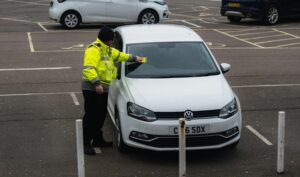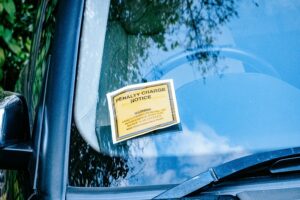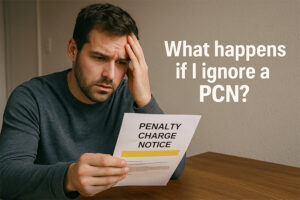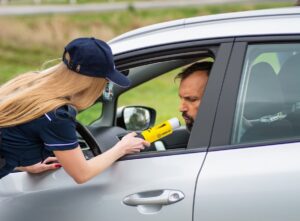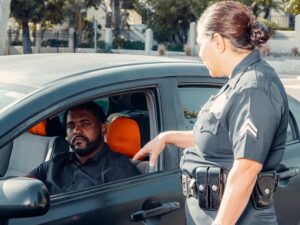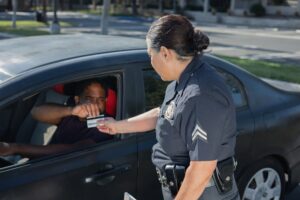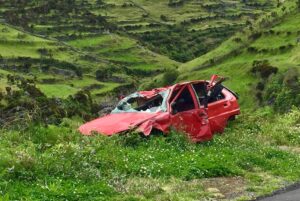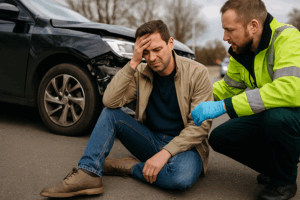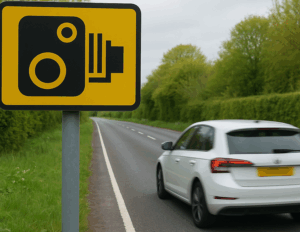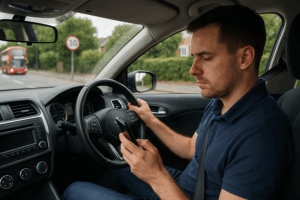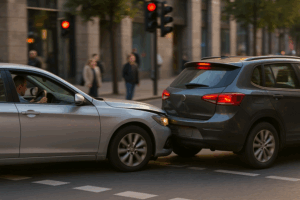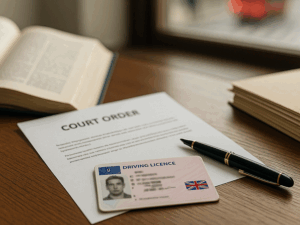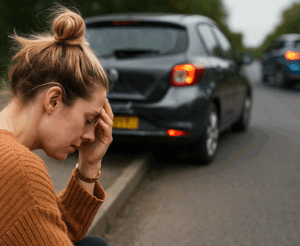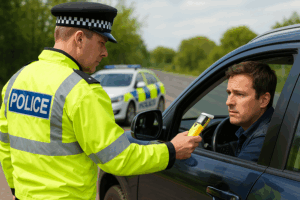What happens if an uninsured driver hits you?

Imagine you are driving, fully complying with the Highway Code, when suddenly another vehicle hits you. Then comes the unpleasant surprise: the other driver is uninsured. Driving without insurance is a serious offence in the UK, and being involved in an accident caused by such a driver often complicates the process of claiming compensation. In this situation, it is essential to know the steps to take to protect your rights and secure compensation. Consulting a specialised solicitor in driving and motoring offence matters can be essential to guide you through the entire process.
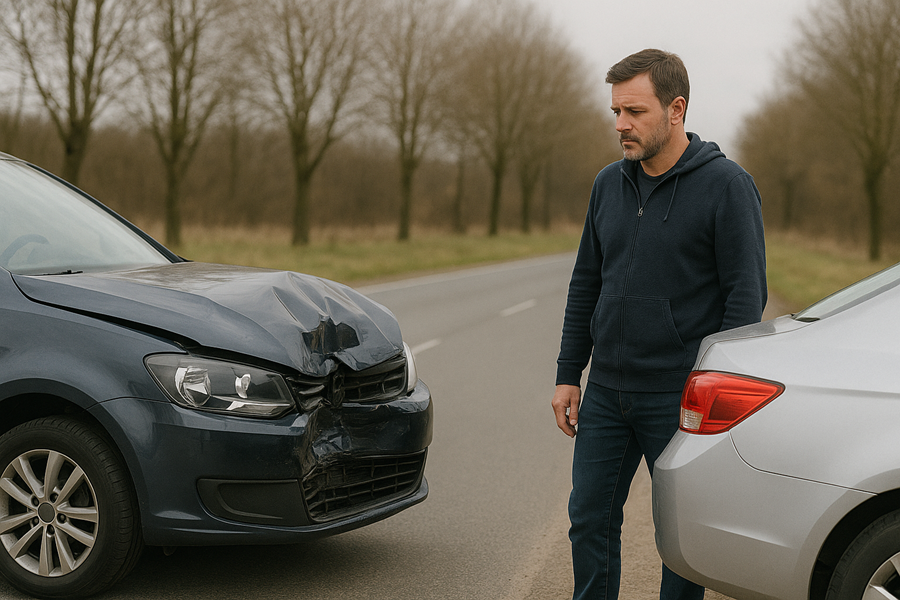
KEY TAKEAWAY: What should you do if you are hit by an uninsured driver?
Keep reading to be prepared to handle this challenging situation effectively.
What is an uninsured driver?
An uninsured driver is someone who operates a vehicle without having the mandatory motor insurance required by UK law.
Under the Road Traffic Act 1988, all drivers must have at least third-party insurance coverage to ensure that any damages or injuries caused in an accident are properly compensated.
Why is driving without insurance is illegal?
Driving without insurance is a serious offence in the UK because:
- It leaves victims of accidents without guaranteed compensation.
- It puts other road users at financial risk.
- The law requires all drivers to have at least third-party insurance coverage under Section 143 of the Road Traffic Act 1988.
Statistics on accidents involving uninsured drivers
- Approximately 1 in 50 drivers on UK roads are estimated to be uninsured.
- Thousands of accidents each year involve an uninsured driver, creating challenges for victims seeking compensation.
- Incidents such as a parked car hit by uninsured driver are not uncommon and still fall under this category.
- Even if you are hit by an uninsured driver, but car is insured, the claims process can become complicated.
Legal consequences for uninsured drivers
Penalties for driving without insurance in the UK include:
- Fixed penalty notices of £300 and six penalty points, or unlimited fines if the case goes to court.
- Immediate seizure and possible destruction of the vehicle under Section 165A of the Road Traffic Act 1988.
- Disqualification from driving (suspension or revocation of licence).
- Potential imprisonment, particularly for repeat offenders or if the uninsured driver causes serious injury.
These strict penalties aim to discourage uninsured driving and protect all road users.
What to do if you’re hit by an uninsured driver?
Being involved in an accident with an uninsured driver can be stressful and confusing. Understanding what happens if an uninsured driver hits you and knowing the right steps to take immediately can protect your rights and help with any future claims.
Immediate steps after the accident
- Secure the scene and check for injuries: Ensure everyone involved is safe. If anyone is injured, call emergency services immediately.
- Collect driver details: Obtain the uninsured driver’s full name, address, vehicle registration, and driving licence number.
- Gather witness information: If there are any witnesses, ask for their contact details as their statements can be crucial.
- Take photographs: Document the accident scene, vehicle damage, road conditions, and any relevant road signs or signals.
Reporting the accident
- You must report uninsured driver involvement to the police as soon as possible; preferably= within 24 hours but no later than within five days under Section 170 of the Road Traffic Act 1988. Report uninsured driver incidents as this is a legal requirement and helps document the incident officially.
Inform your insurer
- Even if the other driver is at fault and uninsured, you must inform your own insurer promptly. If you are hit by uninsured driver, but car is insured, your insurer can guide you on the next steps and may involve the Motor Insurers’ Bureau (MIB).
Special cases
- If your vehicle was parked and hit by an uninsured driver, the same reporting and insurance notification procedures apply under UK law.
Understanding the uninsured driver promise
When involved in an accident with an uninsured driver, you may be offered an uninsured driver promise, a written commitment from the uninsured driver agreeing to pay for the damages or injuries caused. The uninsured driver promise:
- Shows the driver’s intention to take responsibility despite lacking insurance.
- Can help expediate the compensation process, avoiding lengthy legal action or involvement of the Motor Insurers’ Bureau (MIB).
- Is not legally binding under UK contract law.
Risks and limitations of the uninsured driver promise
The uninsured driver promise has significant limitations:
- It depends entirely on the uninsured driver’s goodwill and is not enforceable as a legal contract.
- If the driver delays payment, refuses to pay, or disappears, victims face difficulties in claiming compensation.
- This situation can arise whether you were hit by an uninsured driver, but car is insured, or if your parked car hit by an uninsured driver.
What to do if the driver fails to honour the promise?
- Report uninsured driver involvement promptly to your insurer and the police.
- Understand that when considering what happens if an uninsured driver hits you, the Motor Insurers’ Bureau (MIB) can assist victims in recovering losses when the driver fails to pay.
- Seek advice from a solicitor specialising in either personal injury claims or driving and motoring offences to help enforce the promise or guide you through alternative claim routes.
Claims, Compensation and Evidence: How does it work?
If you have been involved in an accident caused by an uninsured driver, understanding the procedure for making a claim against uninsured driver is essential to ensure you receive the compensation you deserve.
What compensation can you claim?
When making a claim against uninsured drive, victims can potentially receive compensation for:
- Property damage: Repairs or replacement costs for your vehicle or other damaged property.
- Personal injuries: Compensation for physical injuries, pain, and suffering under established legal precedents.
- Financial losses: Loss of earnings, medical expenses, or additional costs caused by the accident.
- Future losses: Ongoing care costs or reduced earning capacity in serious injury cases.
Why strong evidence matters?
Gathering solid evidence is essential to significantly improve the likelihood of a successful claim against uninsured driver. This includes:
- A detailed police report filed after you report uninsured driver involvement.
- Clear photographs of the accident scene, vehicle damage, and any visible injuries.
- Witness statements from bystanders who saw the accident occur.
- Medical reports and records documenting any injuries sustained.
- Expert accident reconstruction reports in complex cases.
Proper documentation helps establish fault, extent of damage, and injury severity, which all support your claim against uninsured driver.
Do I need a solicitor to handle a claim against an uninsured driver?
If you’ve been hit by an uninsured driver, consulting a criminal law solicitor specialised in driving and motoring offence is often essential. Understanding what happens if an uninsured driver hits you can be complex, and a solicitor can:
- Explain your rights and guide you through the claims process.
- Collect and organise evidence to strengthen your claim against uninsured driver.
- Manage communications with insurers and the Motor Insurers’ Bureau (MIB) on your behalf.
- Maximise your compensation, ensuring a fair settlement, especially in complex cases such as injuries or refusal to pay.
- Link your case with personal injury specialists where appropriate to ensure comprehensive legal support.
FAQs
What happens if I’m hit by an uninsured driver but my car isn’t insured?
Without insurance on your own car, compensation becomes very difficult. You may have to pursue the uninsured driver directly, which can be legally complicated. Report uninsured driver involvement to the police immediately, as this is essential for any potential claim.
Can I press criminal charges against an uninsured driver?
Driving without insurance is a criminal offenceunder the Road Traffic Act 1988. The police handle prosecution, so report uninsured driver involvement to them. This helps protect others and supports your compensation claim.
How long do I have to make a claim against an uninsured driver?
You usually have three years from the date of the accident to make a claim against uninsured driver under the Limitation Act 1980. Acting quickly is important to avoid losing your right to compensation.
Being hit by an uninsured driver can complicate the process of getting compensation, but knowing the right steps helps you protect your rights effectively. Remember to report uninsured driver involvement promptly and consider the limitations of any uninsured driver promise before relying on it for compensation.
Need help after an accident with an uninsured driver?
Check Qredible’s network solicitors and get in touch with a specialist for tailored advice and support.
KEY TAKEAWAYS:
- Always report uninsured driver involvment to the police and your insurer without delay.
- Gather thorough evidence, including photos, witness details, and medical records.
- Be cautious about relying solely on an uninsured driver promise as it is not legally enforceable.
- A solicitor specialising in driving and motoring offence.
Articles Sources
- gov.uk - https://www.gov.uk/driving-without-insurance
- actionfraud.police.uk - https://www.actionfraud.police.uk/report-uninsured-driver
- citizensadvice.org.uk - https://www.citizensadvice.org.uk/consumer/insurance/making-an-insurance-claim/compensation-when-the-other-driver-has-no-insurance-or-is-untraced/
- gov.uk - https://www.gov.uk/guidance/the-highway-code
- legislation.gov.uk - https://www.legislation.gov.uk/ukpga/1988/52/contents
Do you need a solicitor?
Find a solicitor on Qredible in just a few easy steps












